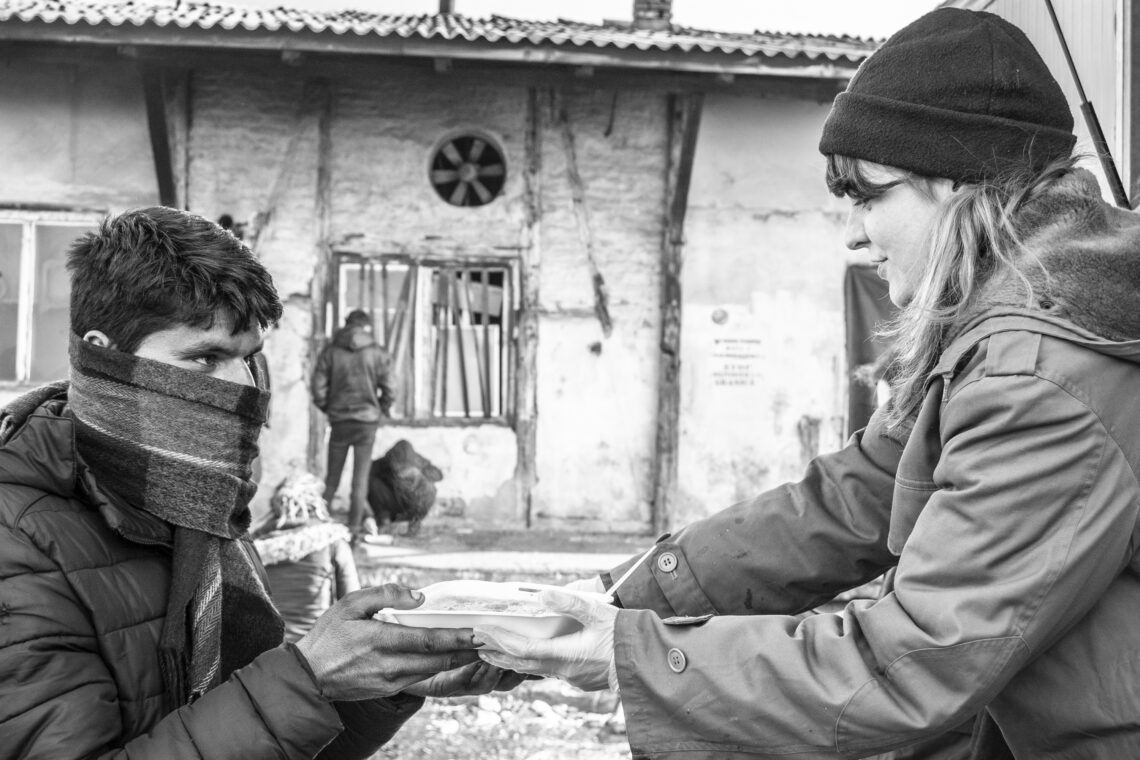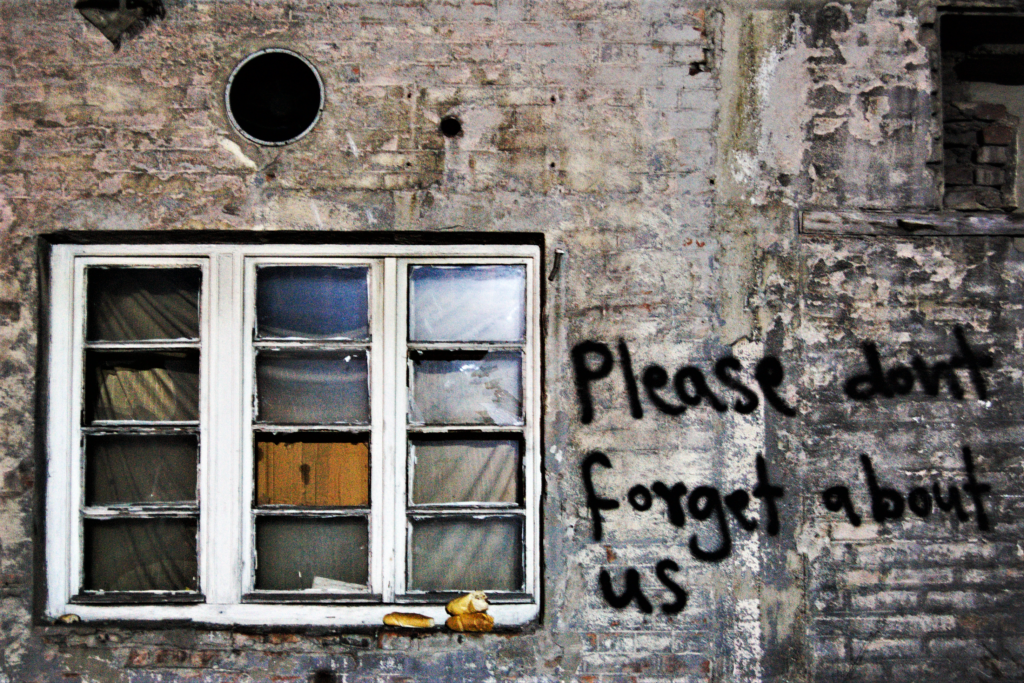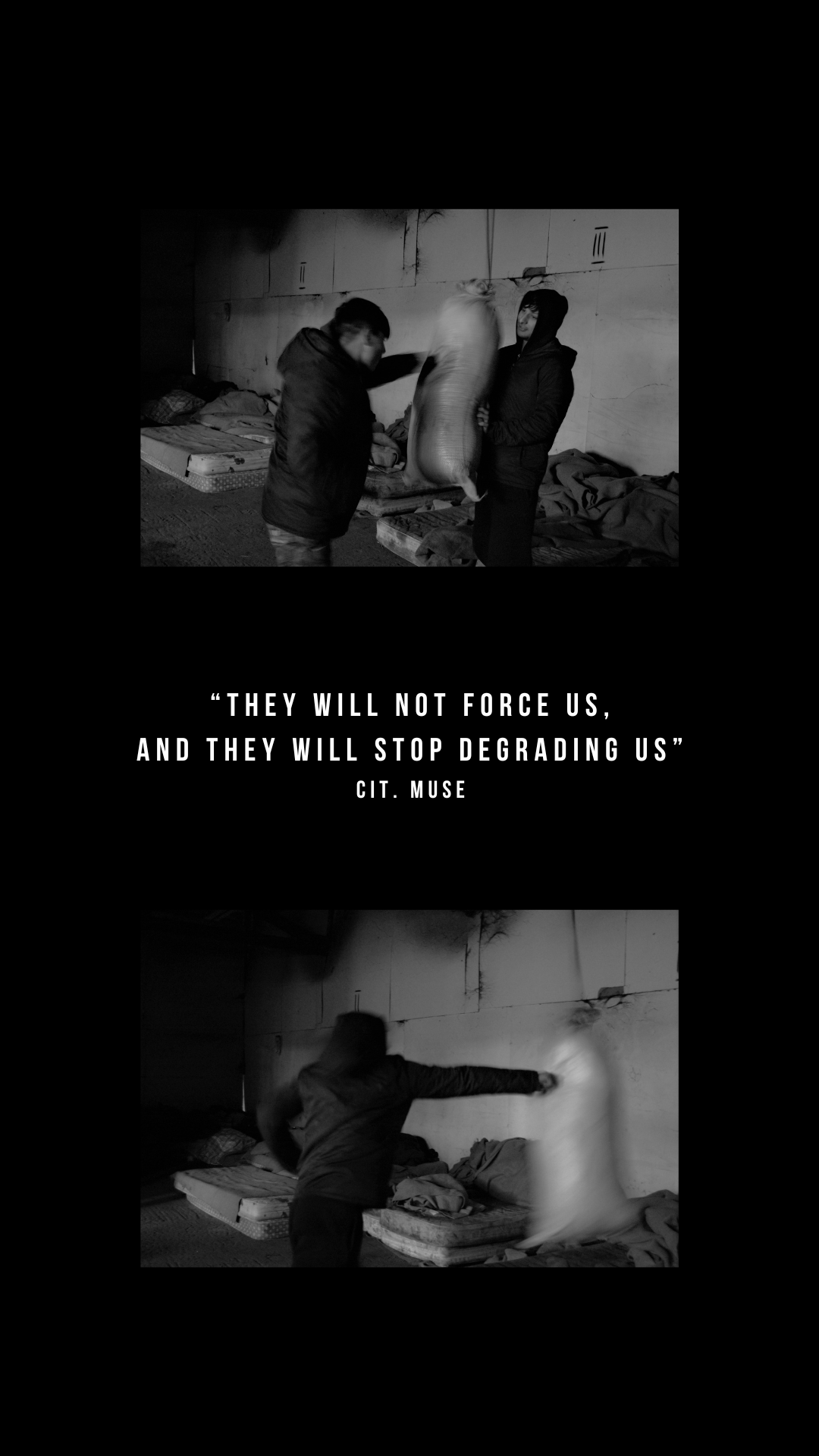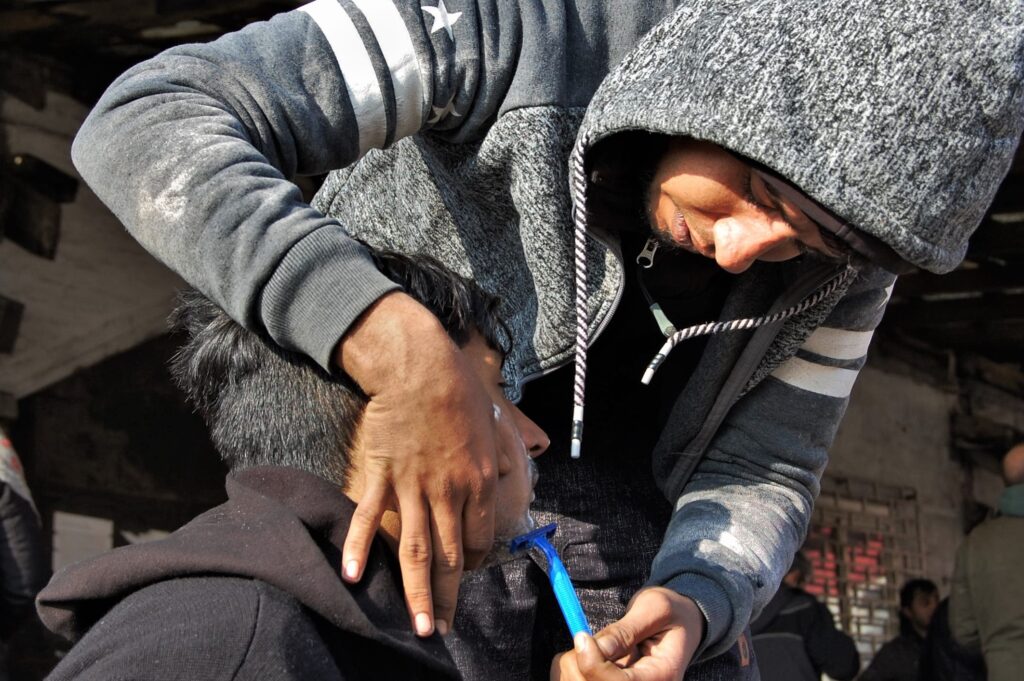
Migrants’ informal settlement in Belgrade
Belgrado (Serbia) 2017 – migrants’ informal settlement









THE INTERNAL BORDERS ACROSS THE BALKANS’ ROUTE
The road that runs from the Aegean coasts to the heart of the Balkans through the borders of Bulgaria, Greece, Macedonia, Serbia, Croatia and Hungary is marked by walls and barbed-wires, and is today one of the most violent routes to Europe.
Abuses committed by police forces. It is along these borders that most of the viola- tions of human rights occur by the police and military forces.
“I tried to leave Turkey crossing the Bulgarian border for five times walking through the woods. For four times we were caught by the bulgarian police beat us badly and used dogs against us. One of us was seriously injured because of dogs bites. The police stole all our money and then took off our clothes and shoes. We had to go back to Istanbul dressed only with underwear for two times, it was really cold. Road to freedom is like hell”, told A. from Afghanistan in the barracks near Belgrade railway station in February 2017.
The same violations occurred since the closure of the borders of the Balkan coun- tries since December 2015. In April 2016, in Idomeni Refugee Camp K., a father who wandered in despair over the field, looking for food for his little daughter, told “We were sleeping in an emergency camp in Macedonia. We were surprised for the second time an attempt to enter Serbia. After that Serbian police discovered, beat some of us and rejected us in Macedonia, we came back to the refugee camp. Macedonian army men was really angry with us, they woke us up during the night, they slapped the chil- dren and stole the money, at last they broke our cell phones. They forced us to return to Greece passing under the metal net that separates Idomeni from Macedonia”.
It does not matter if who is trying to cross the border is underage. “We tried at night to leave Greece and enter Bulgaria. First they made us approach and shot at us with their rubber bullets” says limping M. with his glasses repaired with a piece of scotch tape.
J. had the same destiny. He also still bears the signs of the violence suffered by the Hungarian army men who repeatedly kicked his mouth, seized his shoes, stripped and forced to return from Subotica to Belgrade, aching and frozen.
Even in R., a young Afghan has a similar fate while he was entering in Croatia from Bosnia, “Croatian police immediately used the batons after stopping and taking my phone”.
The expedients to survive. The closure of the borders has caused the dilatation of the travel times of the asylum seekers’ march to reach their destination in northern Europe. Since there is no longer a fast transit from one state to another, asylum seek- ers are almost always forced to stop before finding an expedient -more frequently the contact of a smuggler- to enter the next country. This means that in the border areas, in the neighboring cities and in the large metropolises of the countries affected by the migratory routes, there has generally been an increase in the prices of rents and food.
To survive and raise enough money to continue the journey, almost all migrants are therefore forced to work, without being registered and an equal pay, “I worked for 8€ a day, and during the break I was not allowed to sit with my friends at the same table” said M., 17-years-old, referring to when he was staying in the Kerso camp near Idomeni.
Others, as has been recorded in Athens, remain trapped in the “survival sex” that pushes them to prostitute themselves in exchange for a few tens of euro, “I have nothing to eat, nor where to sleep, I just want to reach Germany, it’s the worst thing I’ve ever done but I have no other choice if I want to survive” said A. with a still teeny voice.
Psychological disorders. “He made these cuts during the journey, the pain pushes us to do this” explains […] crouched along the Roja river in Ventimiglia pointing to his brother’s harm.
A recent report wrote by MSF about the difficult work on the Greek islands, where those who arrive are prevented from continuing their journey to the mainland, has highlighted that suicide attempts and cases of self-harm among asylum seekers have increased dramatically, among adolescents. MSF registered that between February and June of 2018 “nearly a quarter of children had self-harmed, attempted suicide or had thought about committing suicide. Other child patients suffer from elective mut- ism, panic attacks, anxiety, aggressive outbursts and constant nightmares”.


